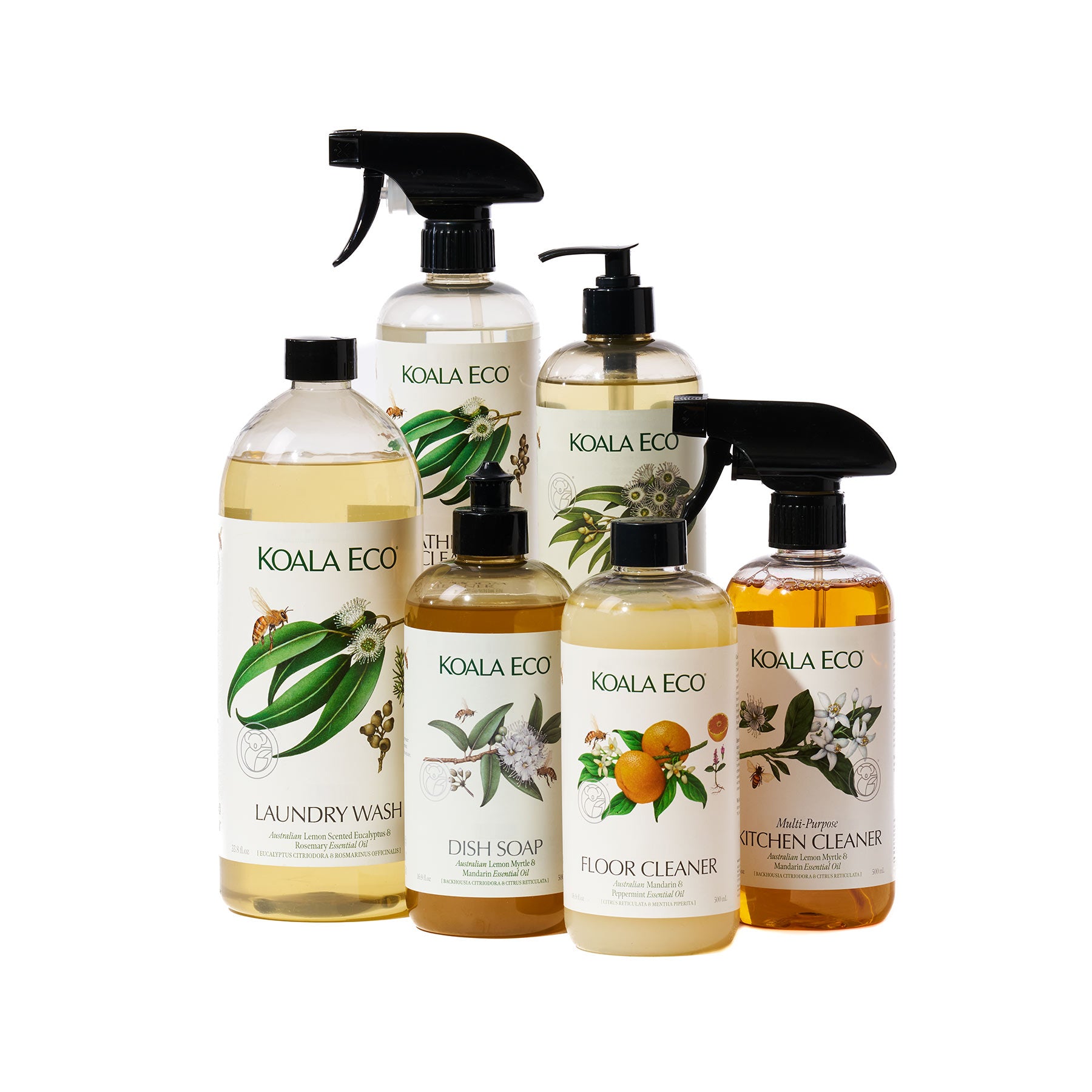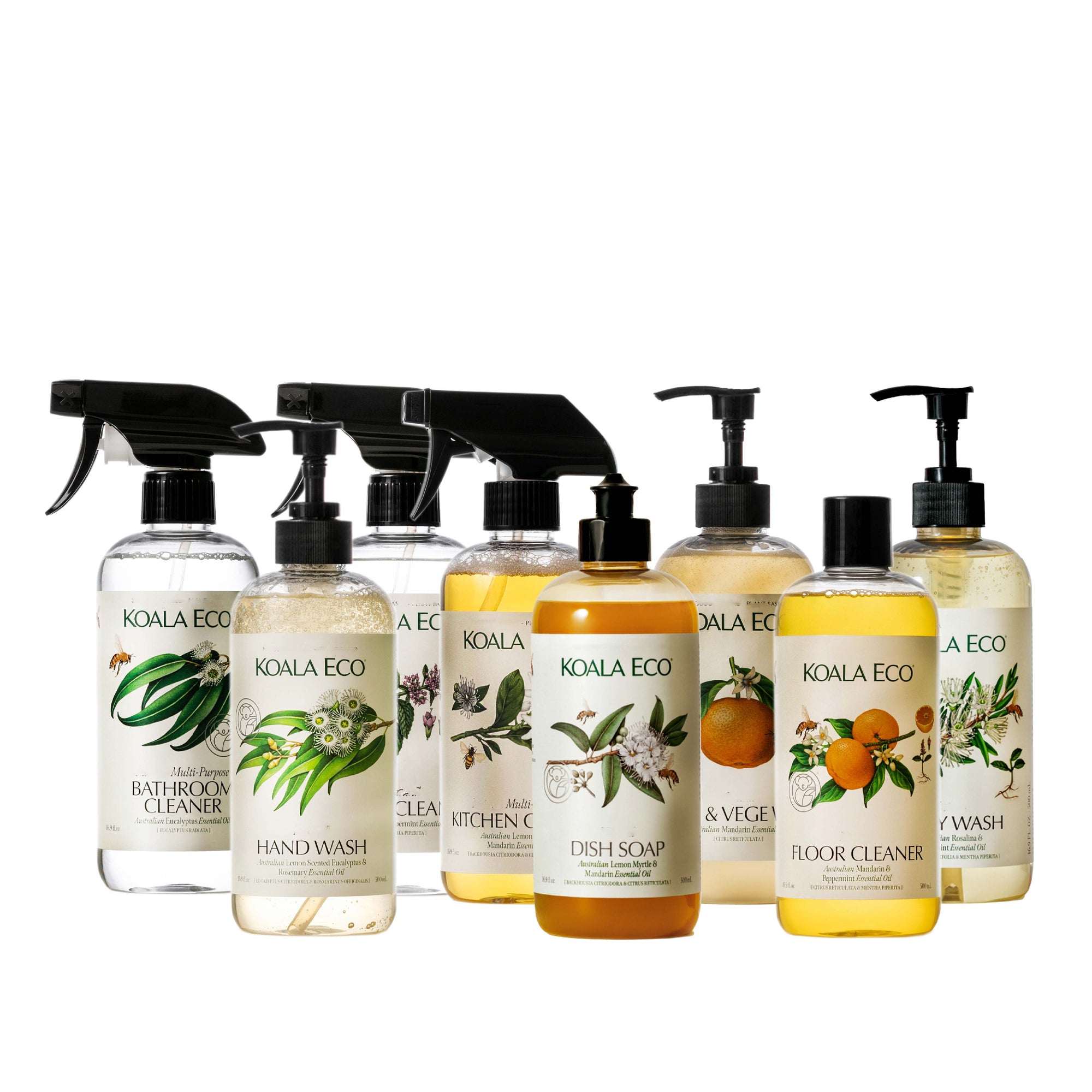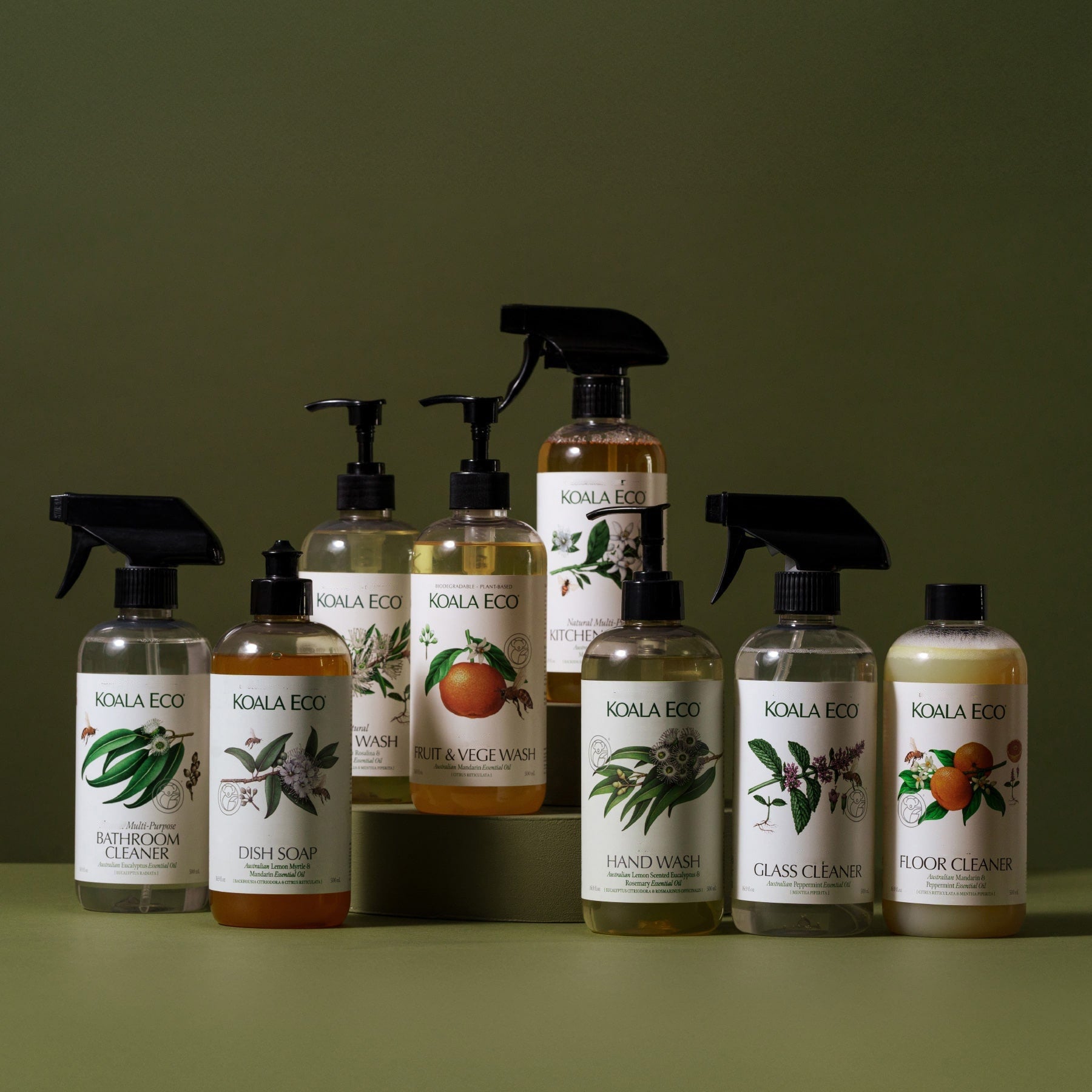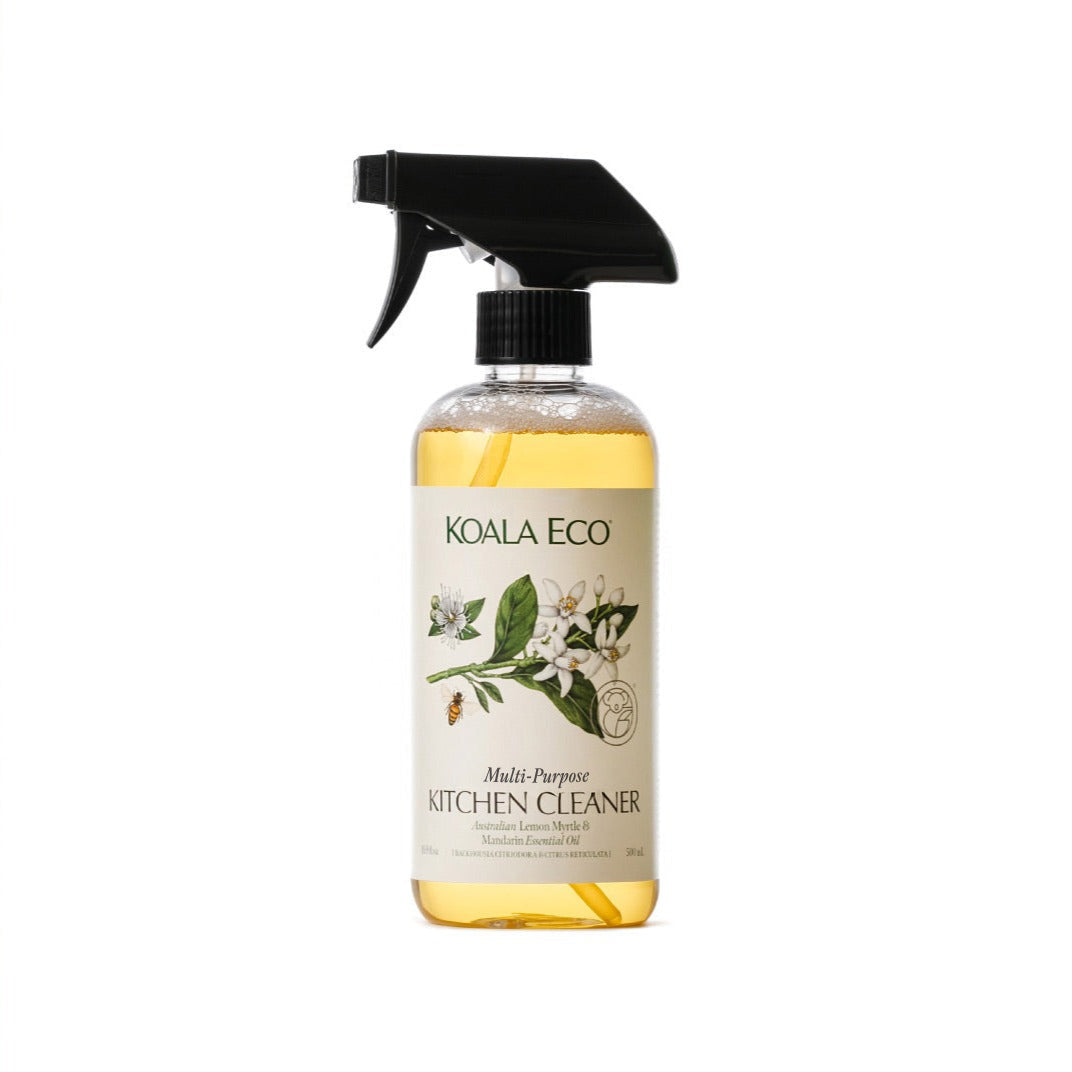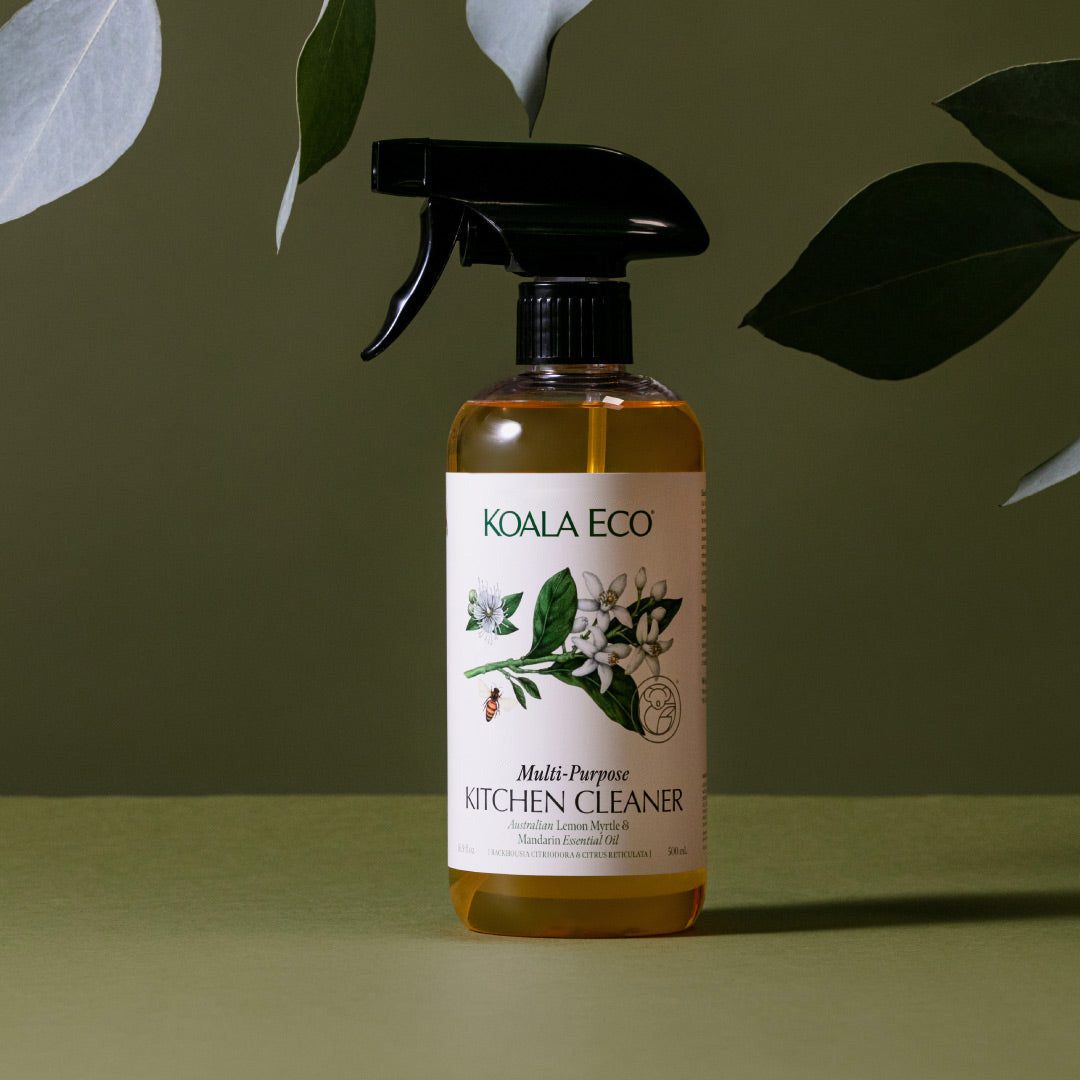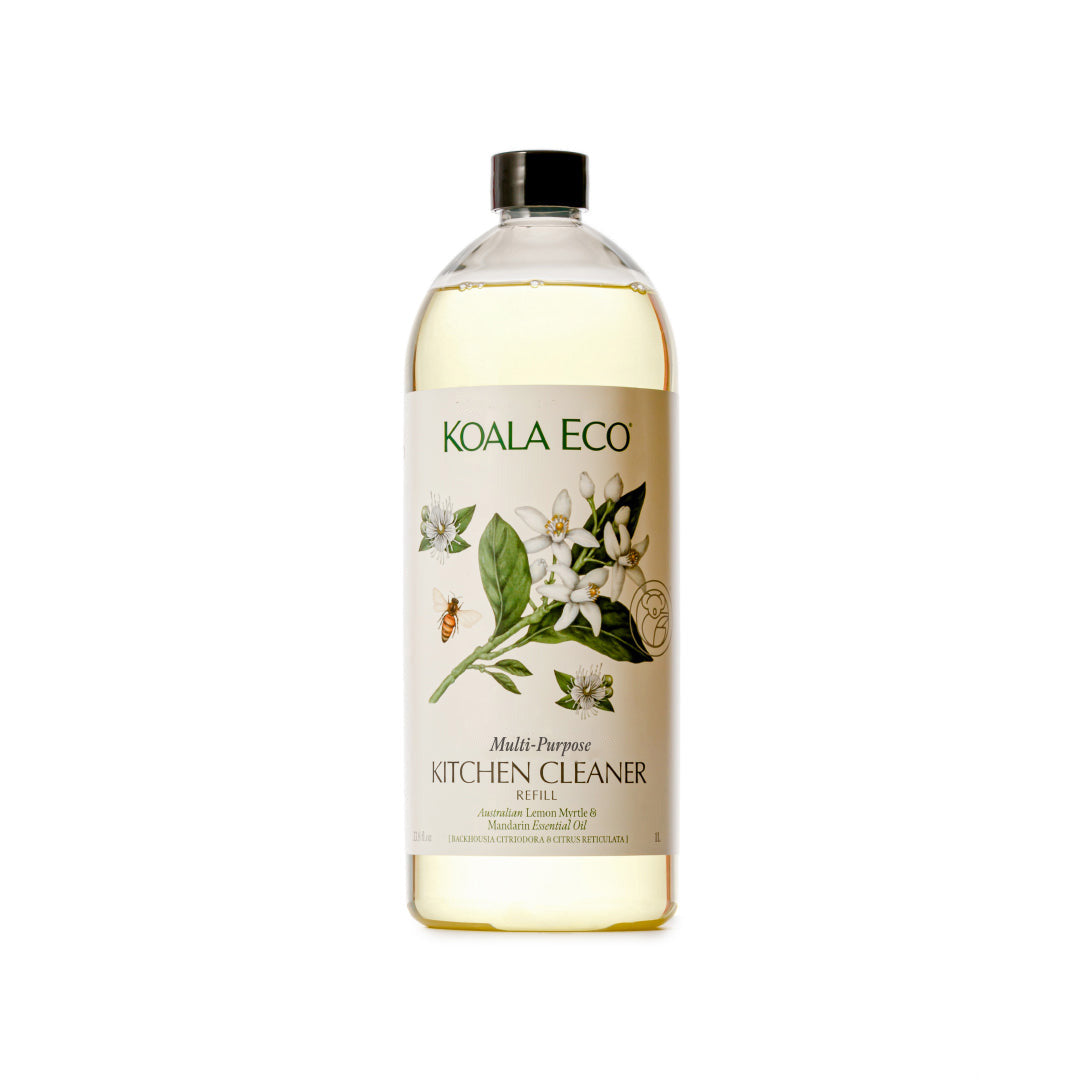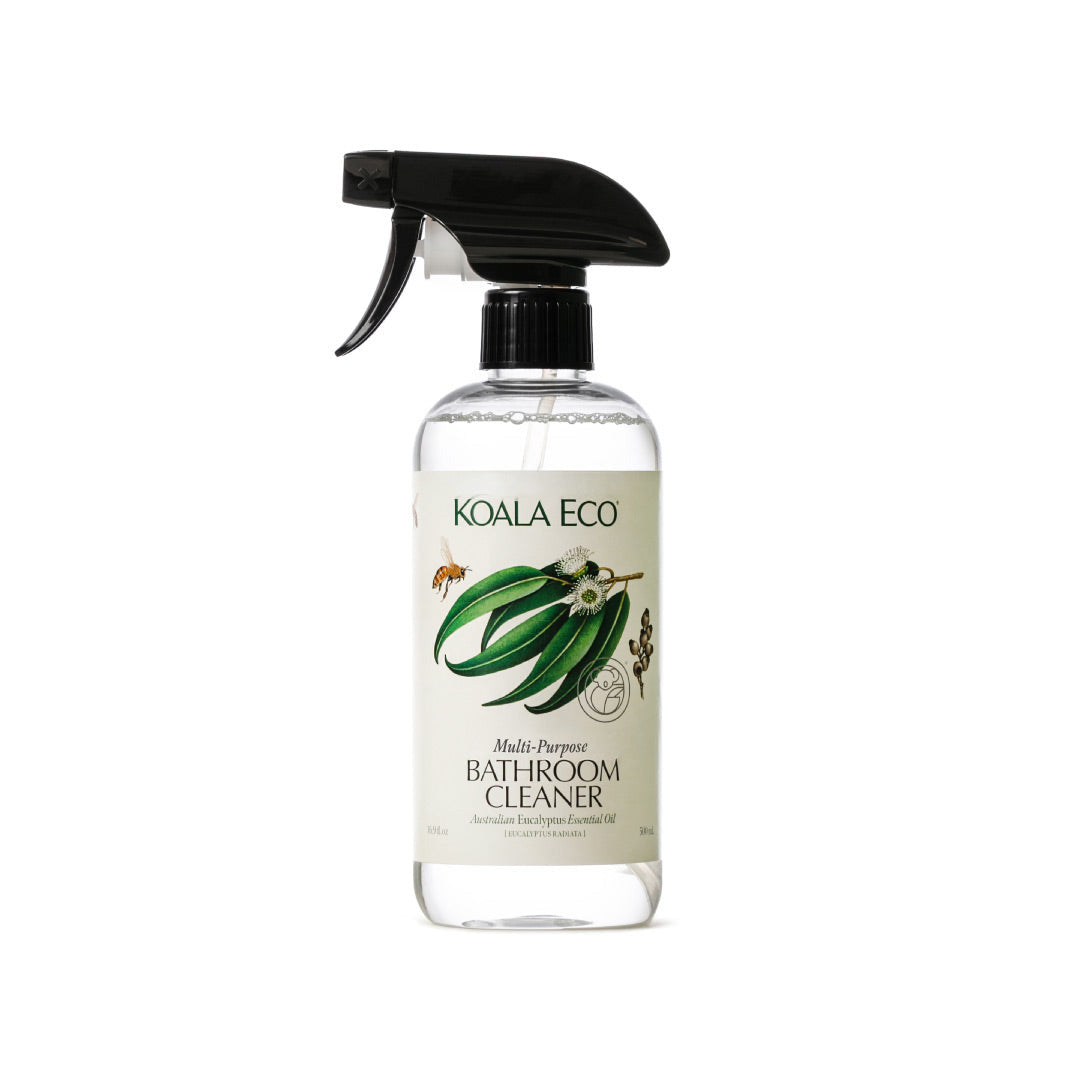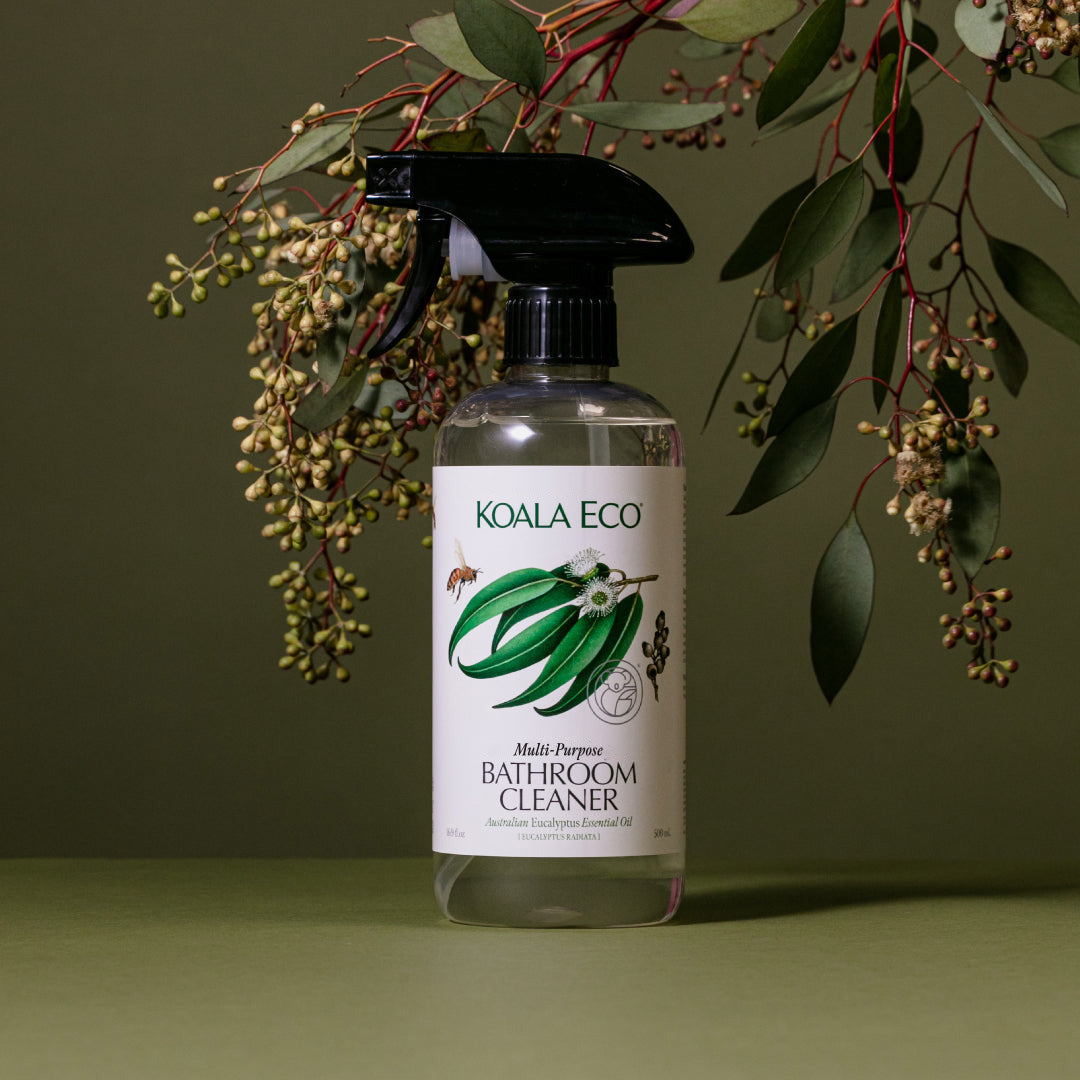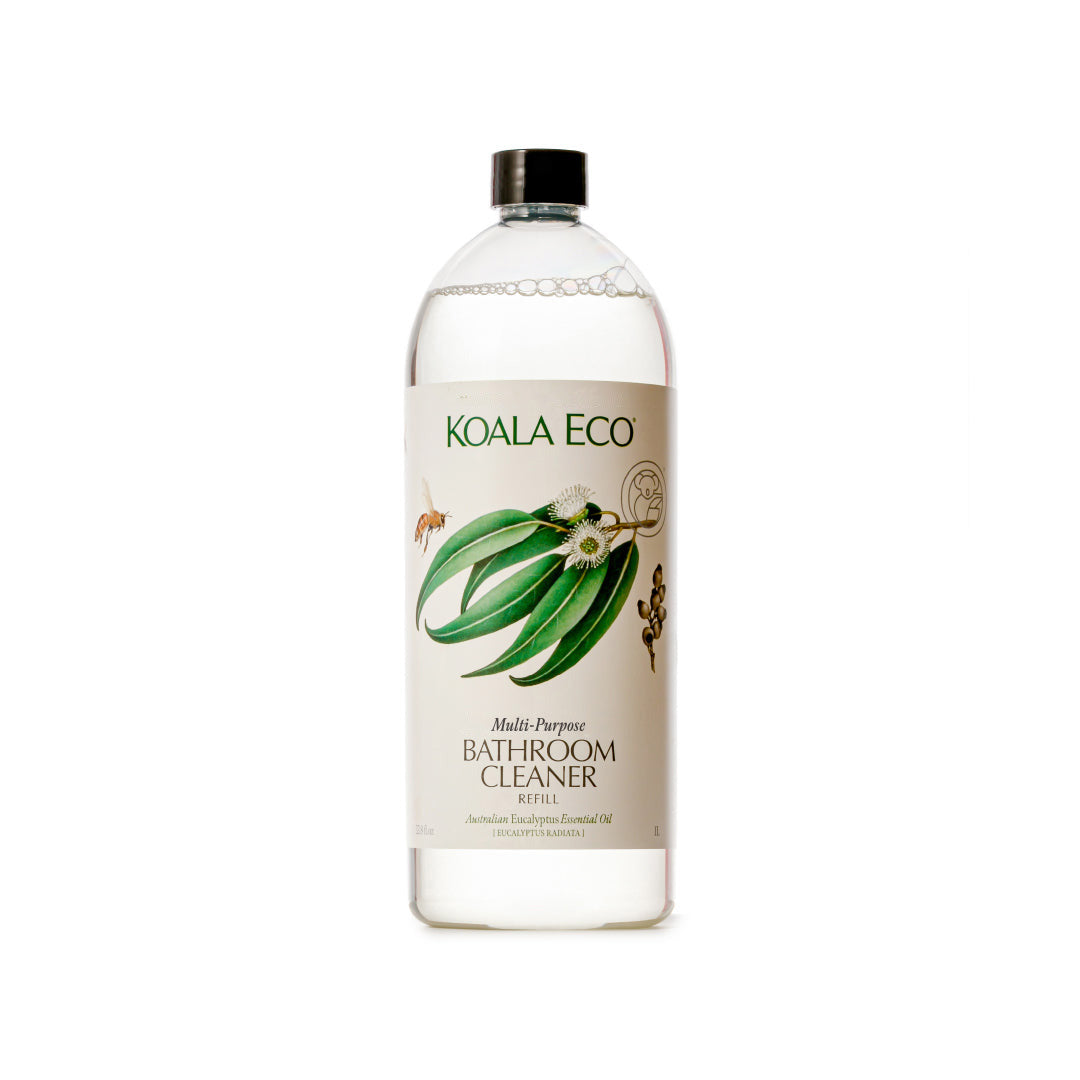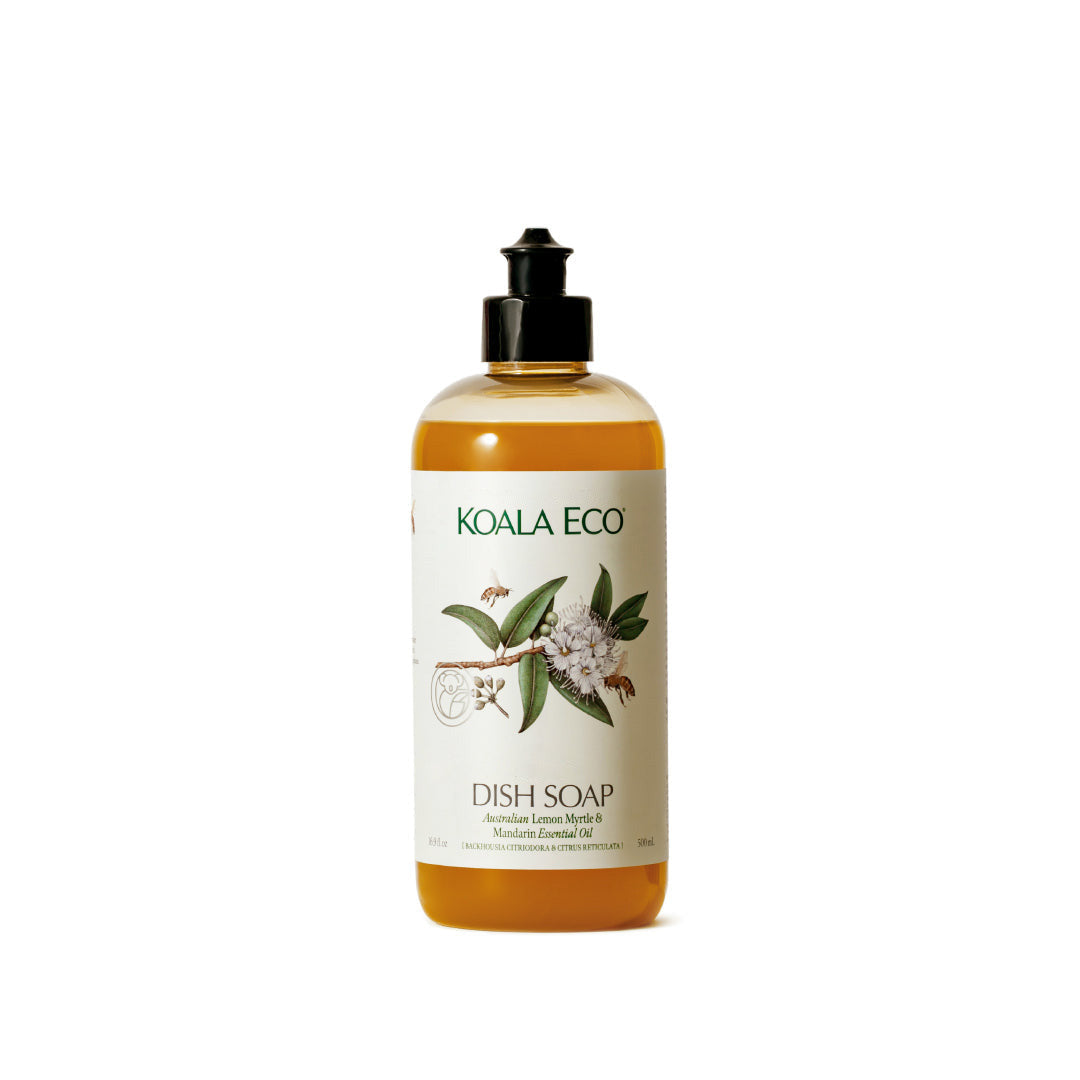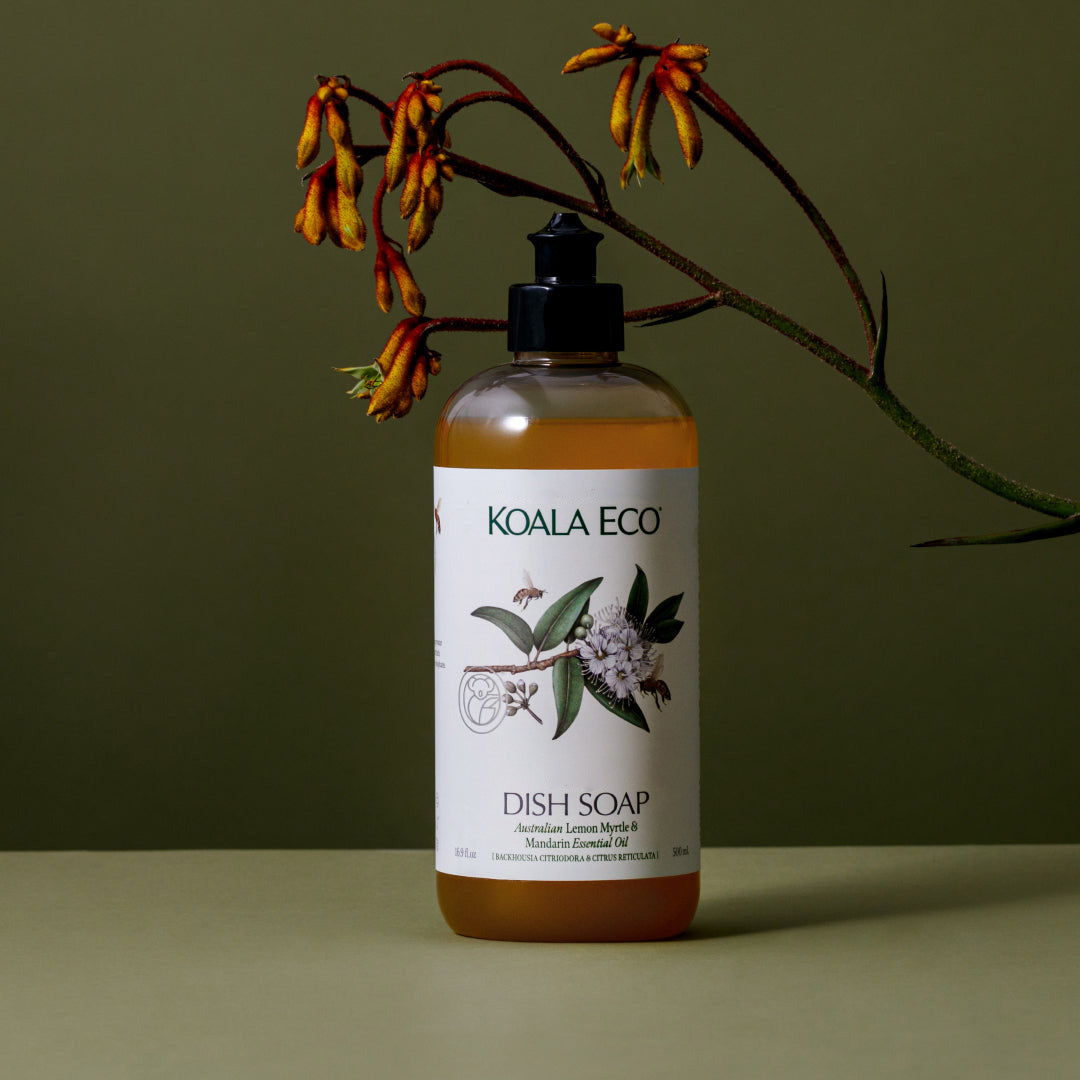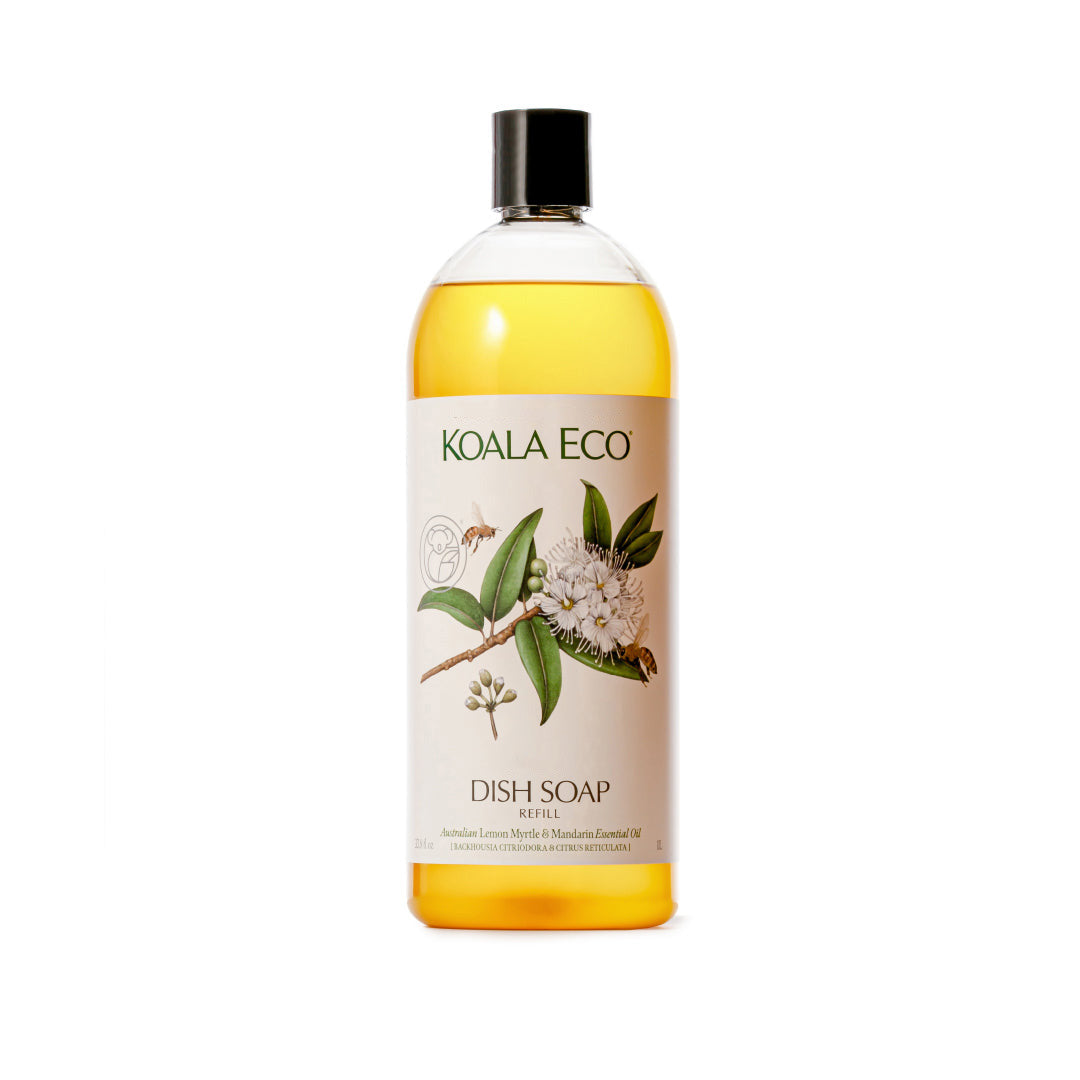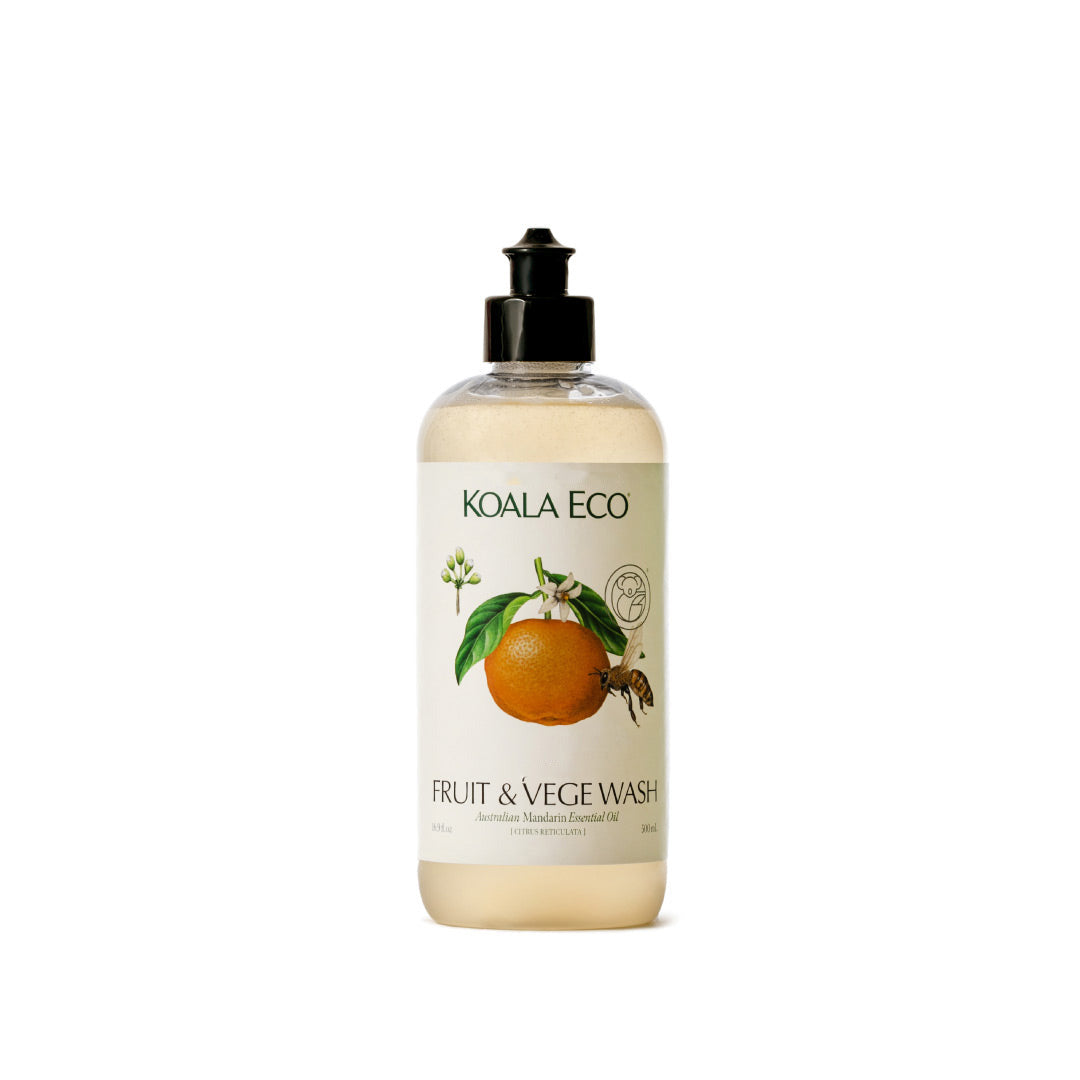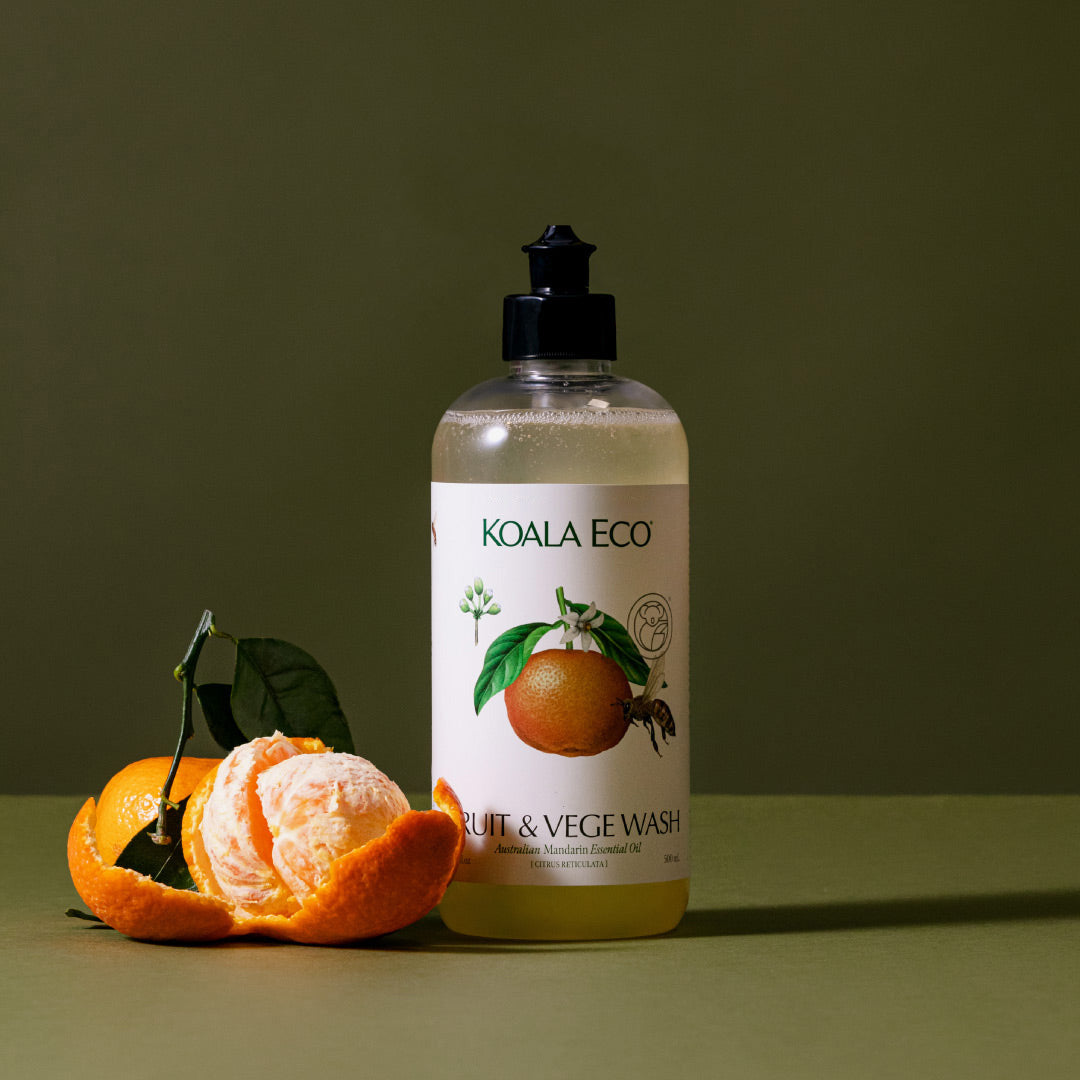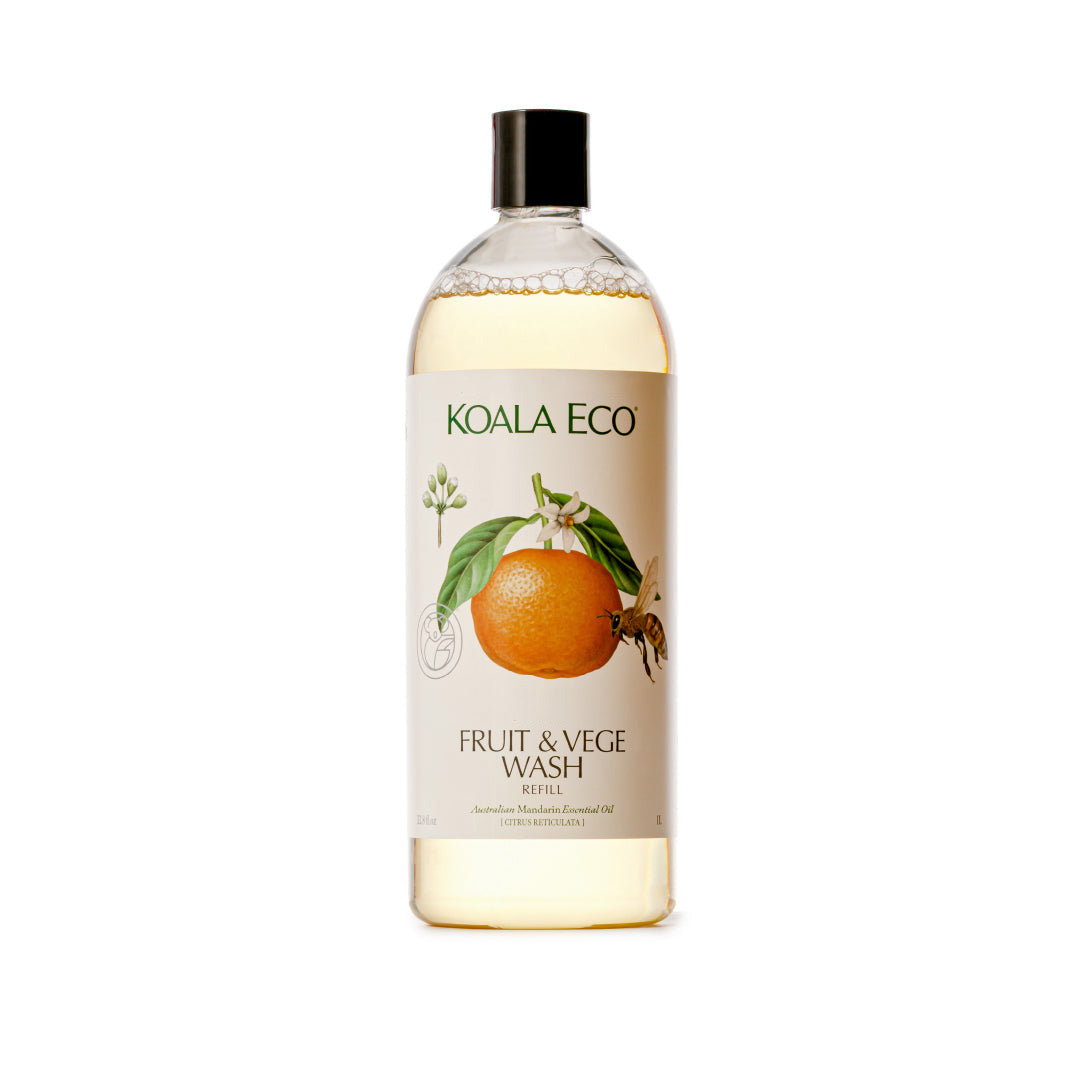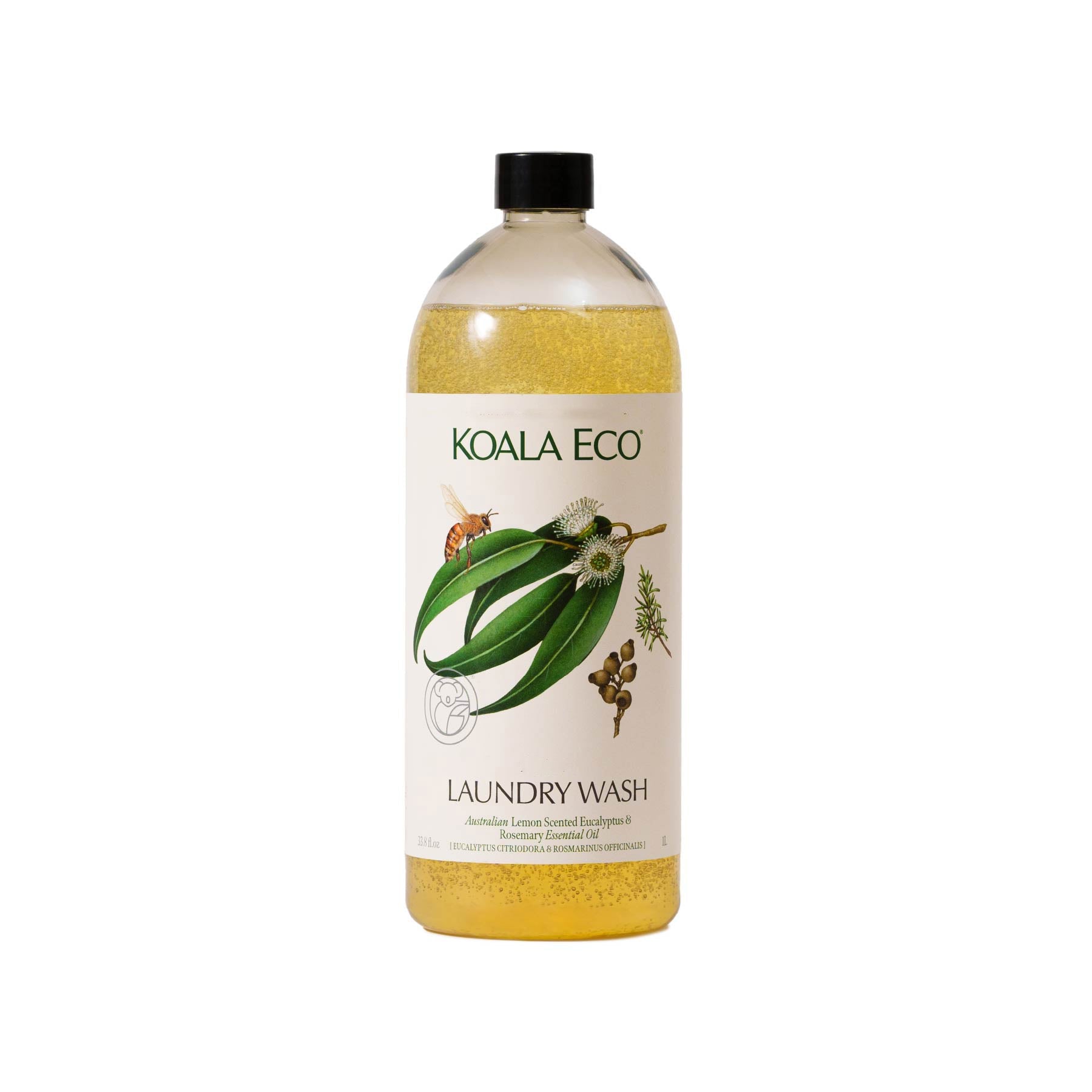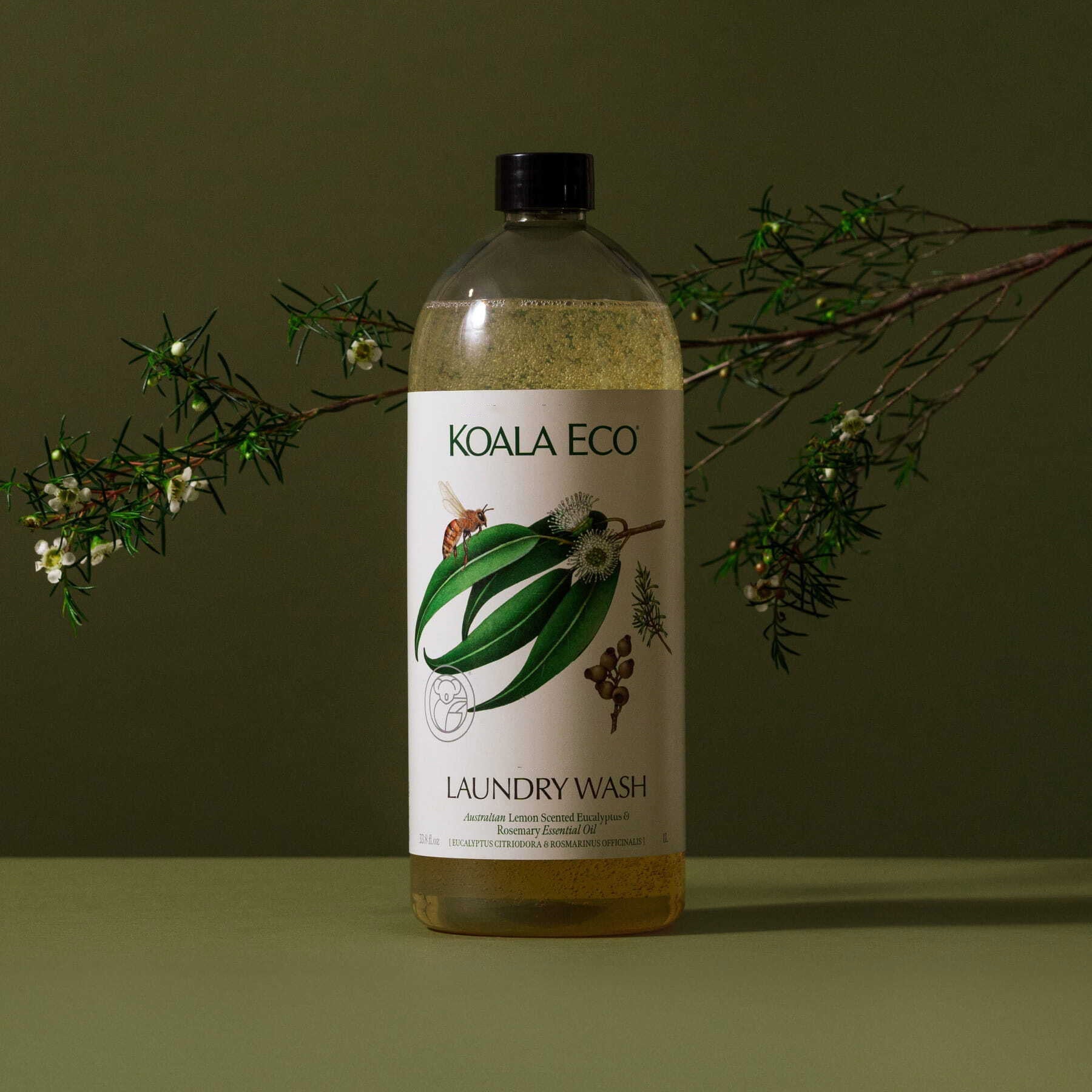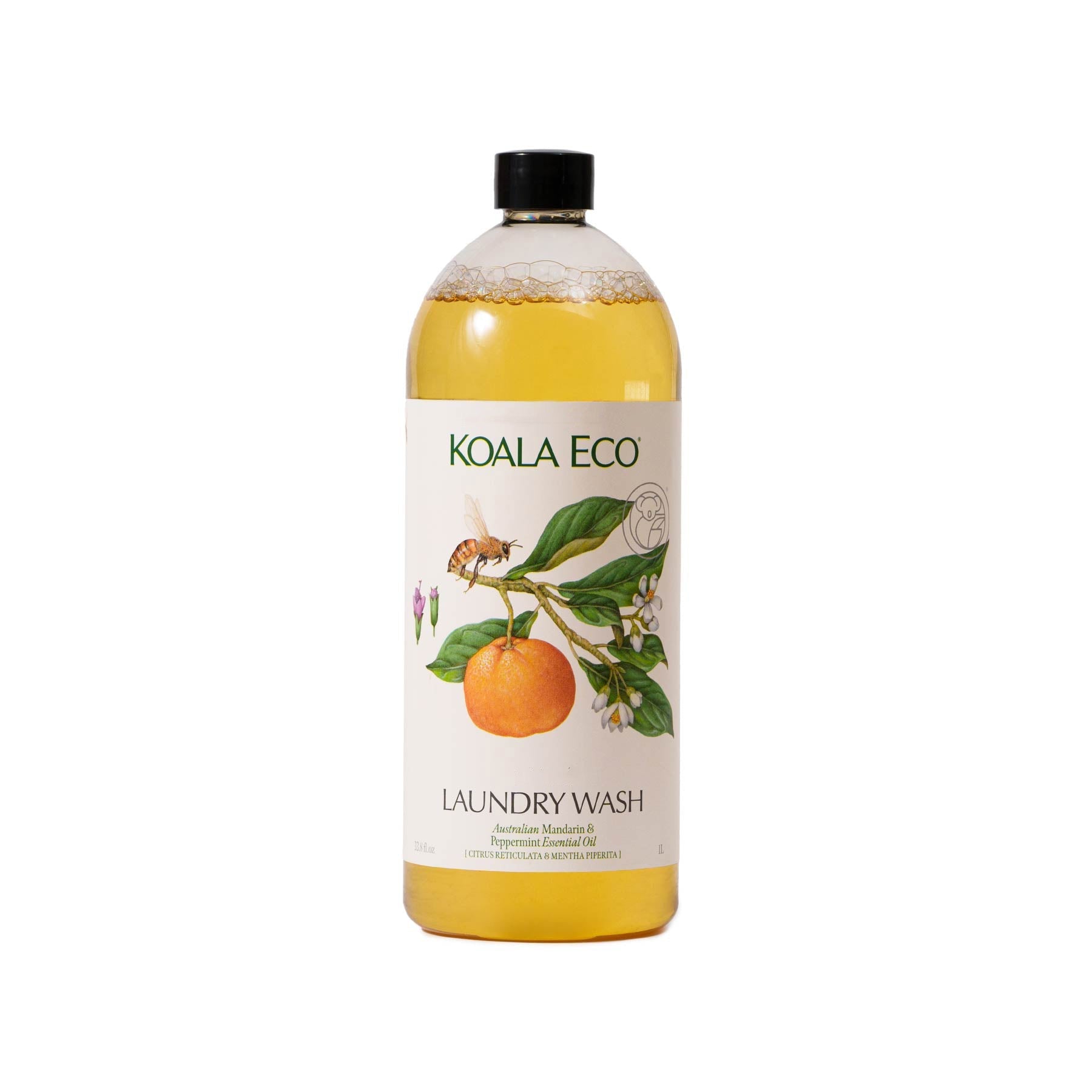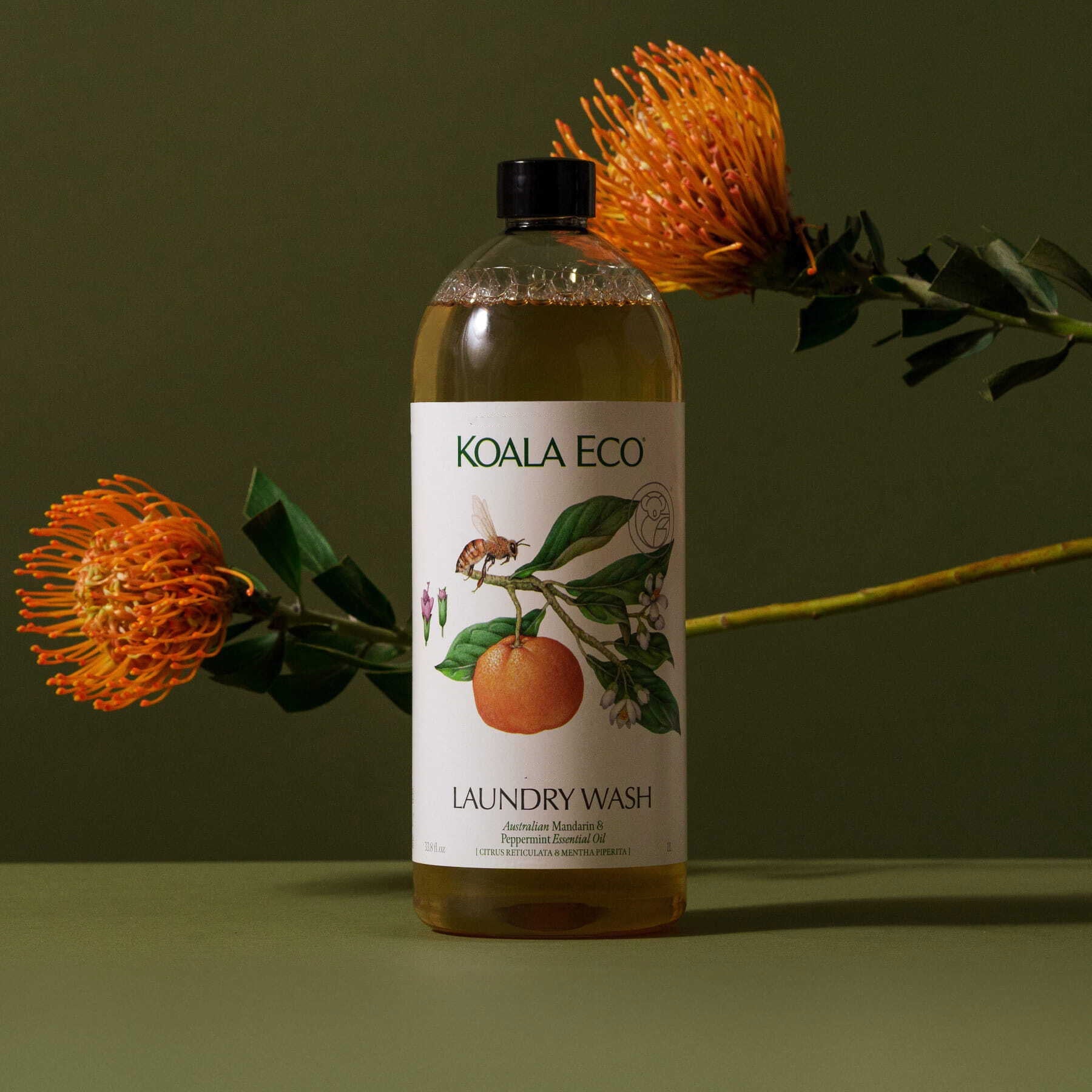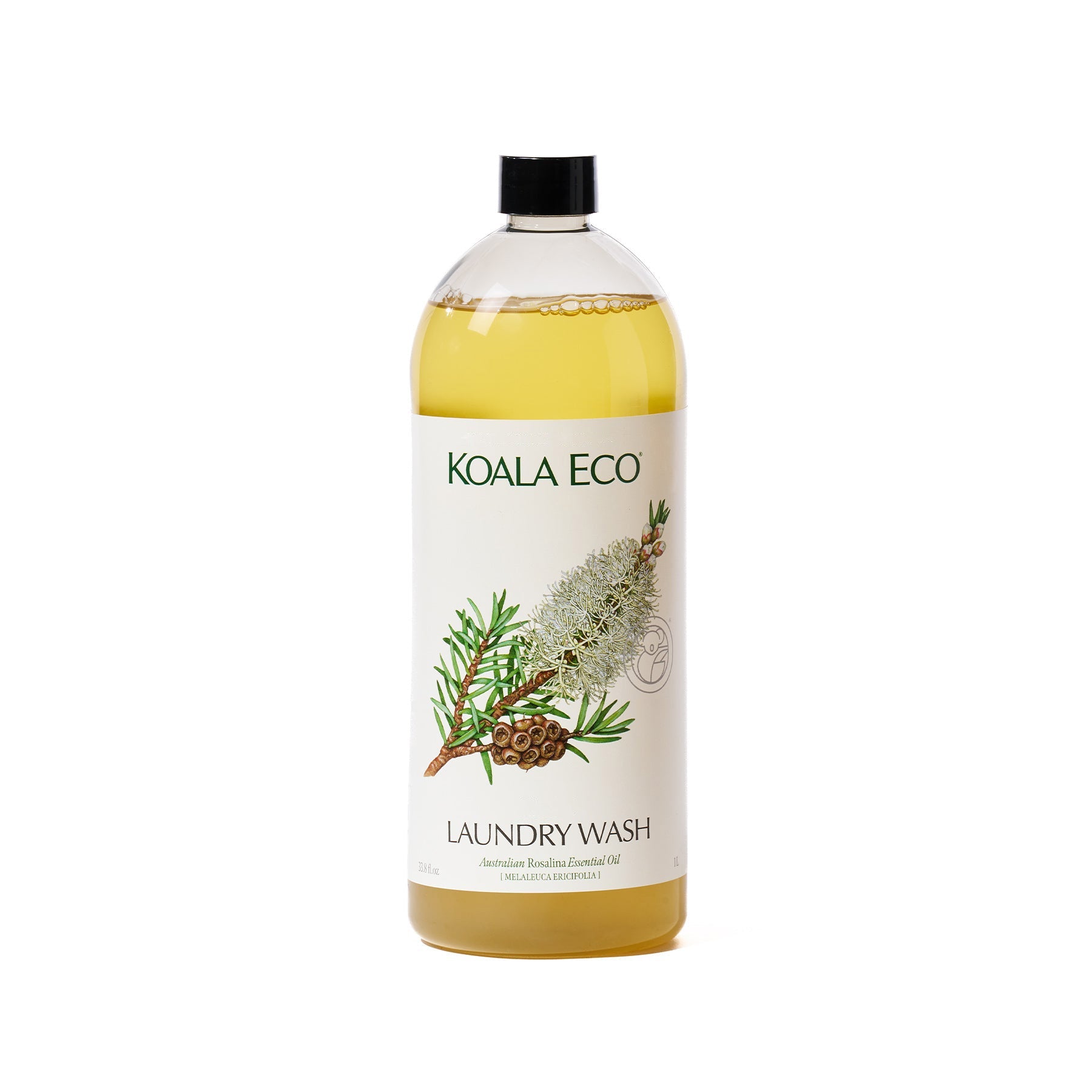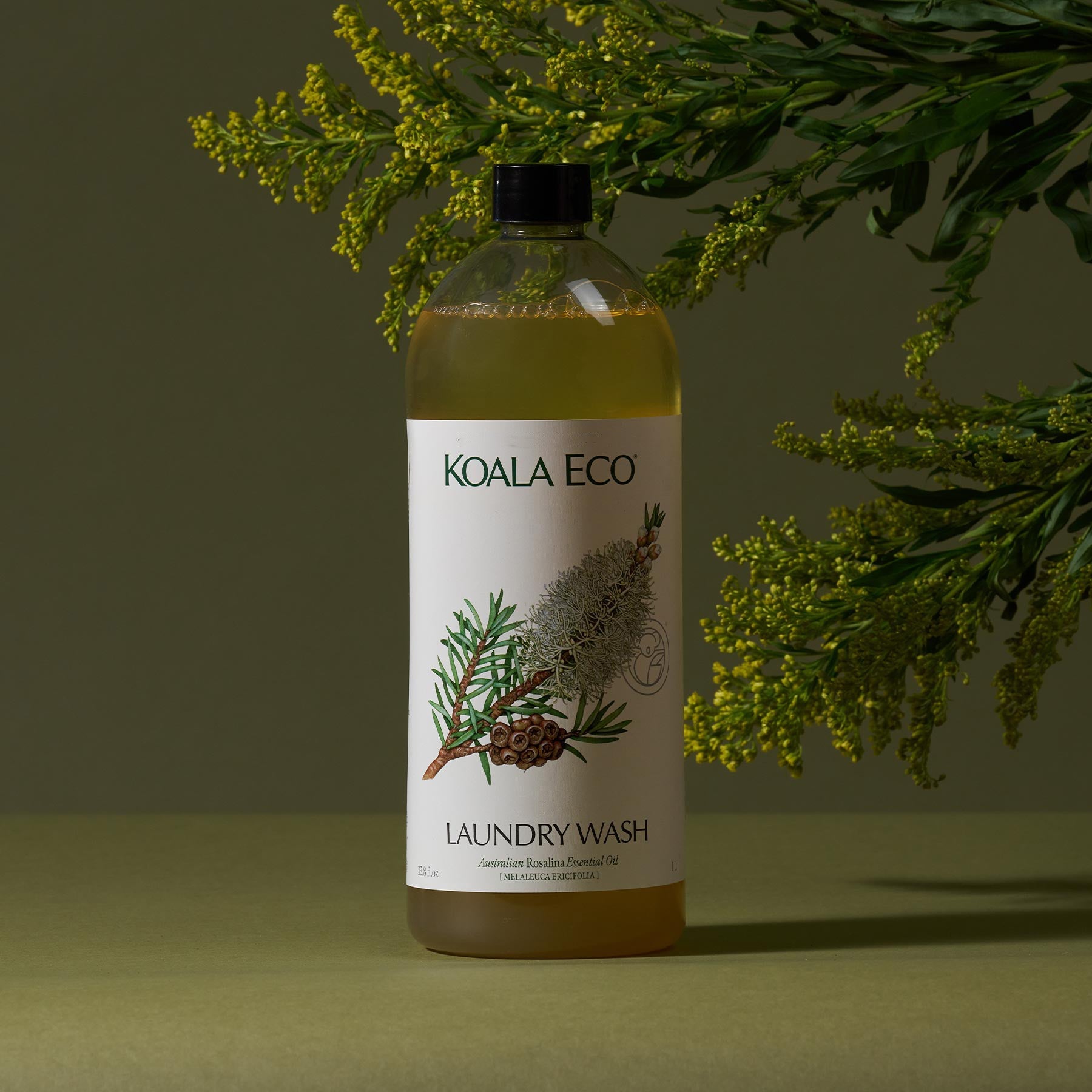You browse the household cleaning materials section of the supermarket, looking for natural remedies: you want products that don’t contain toxic ingredients and fake fragrance, won’t harm the planet, and won’t make you or your family feel ill.
Yet you also want cleaners with powerful antibacterial properties and formulas that clean swiftly and effectively without you having to put in extra work.
You pick up a cleaner that promises to smell ‘naturally’ fresh and lemony while it is blitzing ninety-nine per cent of germs from your kitchen or bathroom surfaces. You pick up another that vows it cleans the ‘natural’ way and contains ‘plant-based’ elements…yet what is this coco-betaine listed in the ingredients? And is that lemon fragrance really natural?
When it comes to people-, pet- and planet-friendly cleaning products, more and more of you are doing your research and ignoring all the ‘green-wash’ promises to find products that really are safe and natural.
To help you, here is Koala Eco’s guide to the ingredients that are often listed on so-called ‘natural’ remedies:
- Petroleum-based ingredients
- Nitrates, ammonia, chlorine, sulphates
- Sodium Lauryl Sulphate and Sodium Laureth Sulphate. SLS, SLES are known irritants
- Sodium Coco Sulphate. Often used in 'natural' products to replace SLS but very similar to SLS (just slightly less processed)
- Cocamidopropyl betaine (Coco-betaine), a foaming agent often used in ‘natural’ products which sounds like it is derived from coconut but is also derived from ‘dimethylaminopropylamine’ and isn’t completely plant-based. Potentially impacting non-renewable palm plantations. This ingredient has been claimed to be an allergen.
- Fragrance, made from a blend of ingredients, which can mean synthetics or nasties are hidden
- Parabens
- PEG
- TEA (Triethonalomine) and DEA (Diethonalomine): a surfactant that potentially causes skins reactions
- Triclosan
- Phthalates.
None of Koala Eco’s products contain these ingredients. They don’t contain synthetic colours or fragrance, nor any animal products. The fragrance in our products comes from 100 per cent pure essential oils, pressed from the leaves, barks and skin of Australia’s native plants and citrus fruits. The cleaning power comes from these plants’ natural antiseptic and antibacterial properties. The only other ingredients in our products are water, salt and plant-derived surfactants and preservatives.
Give the synthetic supermarket choices a miss. And remember, each product you buy from us triggers a donation from Koala Eco to environmental charity One Per Cent for the Planet.

![The Sunday Reset - Inspired by the Narrow-leaved Peppermint [Eucalyptus radiata]](http://www.koalaeco.com/cdn/shop/articles/Koala-2025-TSR-Peppermint-Journal_Banner_1228eafe-9ead-435b-828e-22899b3e5cd8.jpg?v=1770260830&width=2000)




